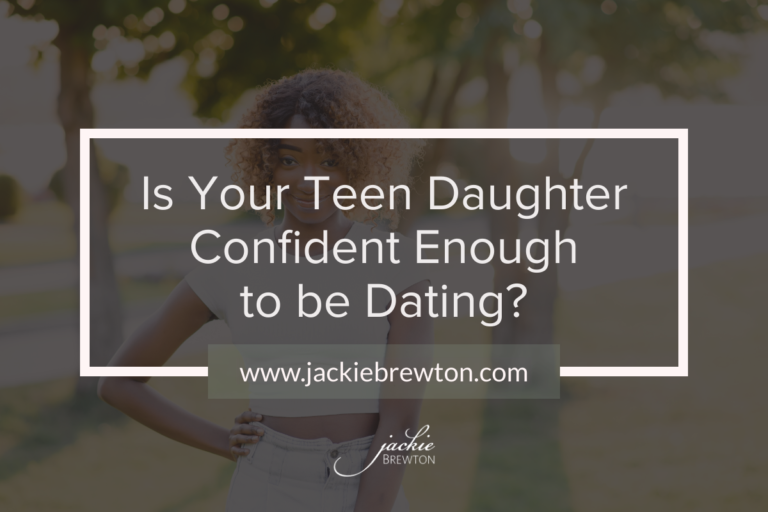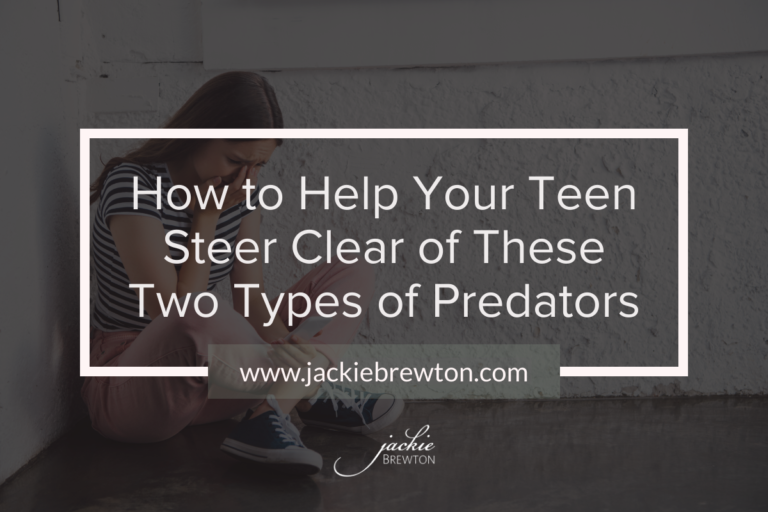Teen Sexual Assault: Why Damage Done Doesn’t Mean “Damaged Goods”

Last week, I shared the first of what I originally planned to be a two-part series for Sexual Assault Awareness & Prevention Month.
But I realized while working on today’s post that I still have more to share on this issue.
So, welcome to the 2nd of my now three-part series.
If you missed last week’s post, I pointed out just how common sexual assault is.
Today, I want to address the issue of victim-blaming and its damaging impact on young survivors.
The Sexual Assault “Blame Game”
When girls confide in me that they’ve been sexually assaulted, it’s either anonymously via letters they’ve written, or in person after class.
My first question to girls who tell me in person is, “Did you report it?”
Sadly, more often than not, I’m the first person they’ve told.
I explain to them that as a mandated reporter, I’m required to report the assault to their school’s administrators.
Which I do. But I also ask girls why they haven’t told anyone, not even their mothers.
What’s a common response I hear?
They don’t want to be judged.
Because even when girls are brave enough to speak up, as a culture we have a tendency of questioning what girls did (or didn’t do) to cause their own assault.
Like when I discuss the topic of date rape and consent in my classes.
I share a story about a young lady who confided in me that she was raped by a guy when she went to his house to watch a movie.
I’m often shocked to hear students (guys AND girls), say the young lady was “dumb” to not know what the guy had in mind when he asked her to come over to “watch a movie.”
As if the rape was her fault.
(Apparently “Netflix and chill” is the new code word for “I want to have sex”).
Then they’ll ask, “Why didn’t she fight him off?”
And girls will even say, “There’s no way anyone will ever be able to rape me because I’ll kick him where it hurts, etc.”
So, my first response is to ask them, “Why should anyone HAVE to fight?”
Then I try to help them understand that it’s really easy to say what you will do when you’re not in that situation.
Still, how disappointing is it that even girls take part in victim-blaming?
Can you blame girls for not wanting to deal with their peers playing the “blame game?”
Especially when they do a good enough job of that themselves.
What to Do When the Damage is Done
Girls who’ve been sexually assaulted often blame themselves.
Think about it: why would you want to tell anyone what happened when you believe it’s your fault?
“The first time I heard you speak was when I was a freshman in high school. I wanted to think of myself as a virgin because of what happened beforehand. In the summer of eighth grade, I lost my virginity to this guy I knew for three days. I wanted to forget all about it. I hated myself for being so stupid. I knew it would be unforgivable so I didn’t say anything.”
Not to mention, many survivors feel like they are “damaged goods.”
Which is why it’s so important to talk to our girls about sexual assault.
Survivors need to know that they did NOT deserve to be raped and they are of no less value because they were.
Something I make sure to share with students.
And many of them break down when I tell them that they are NOT “damaged goods.”
“Your visit made me rethink my life and all of my choices. You helped me with past emotional scars. You said something I’ll always hold close to my heart, ‘Just because you were raped or molested doesn’t mean you’re damaged goods.’ Tears came down my face as soon as you said it. Through all of the writing, pain and coping mechanisms I tried, all it took was you saying that simple powerful thing for me to honestly realize what I deserve. I was in the darkest place once before and I never want to be in a place like that again. I was just so messed up in the head and I’ll always repeat those words to myself whenever those old emotions come back to me. I can’t thank you enough Ms. Jackie. Please keep saving lives because that’s exactly what you’re doing!”
What if, heaven forbid, your daughter needs to hear the same thing from you, but she won’t say anything because she’s afraid of being judged.
Or even worse, she blames herself for her own assault. Like the young lady below:
“I always thought it was my fault that I got raped, but you showed me that it wasn’t…Also because of you, I am closer to my mother. Since she learned about the rape, she seems to care for me more.”
Notice what happened once she told her mother about the rape?
Their relationship grew closer.
Not because her mother cared for her more.
But because once her mother knew about the assault, she made sure her daughter didn’t have to face it alone.
That’s why I urged the young lady to tell her mom.
And that’s why I urge you to sit down and talk with your daughter about sexual assault.
You can’t be there to help your daughter if you don’t even know she needs it.
But don’t worry Mom, you’re not alone.
I’m here to guide you every step of the way with my How to Have the Tough Conversations e-course.
I will coach you through the same uncomfortable conversations that other Moms come to me to have with their daughters, including rape.
I pray that it will turn out that sexual assault is not your daughter’s story.
But if it is, please let her know that while damage has been done, she is NOT and NEVER will be “damaged goods.”
P.S. Teen girls who’ve survived sexual assault also face the blame that comes with it—from the “culture” and from themselves. No matter how much physical, emotional, and spiritual damage has been done, they need to know they are NOT “damaged goods.” And I believe no one can deliver that message better than Moms. My How to Have the Tough Conversations e-course will show you how. Go here for more details about the e-course.
P.P.S. Please share this post with your friends on social media and help sound the alarm about sexual assault and our kids.



